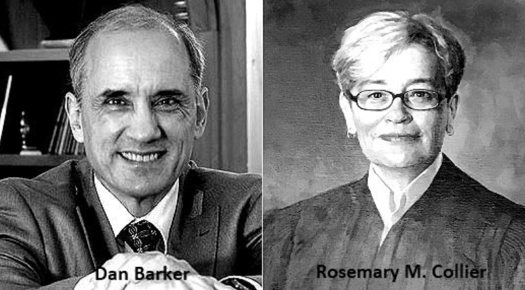
Last year, the Freedom From Religion Foundation (FFRF) sued U.S. House Chaplain Patrick Conroy, a Roman Catholic priest, for barring FFRF Co-President Dan Barker from delivering a secular guest invocation to the House because he does not believe in God. Barker and the FFRF sued Conroy, members of his staff and Speaker of the House Paul Ryan for discrimination against nonbelievers, who constitute one-fourth of the U.S. population.
The case began when U.S. Rep. Mark Pocan, D-Wis., who represents Barker's district in Madison, Wis., requested that Barker give the opening invocation before the House. Barker met the requirements for being a guest chaplain — even though those requirements, the lawsuit said, were “inherently discriminatory against the non-religious and minority religions.” He was rejected from delivering an invocation to Congress because he didn’t follow one of the religions acceptable to the U.S. House.
Barker even submitted a draft of his speech, but he was still rejected: Not only did Barker provide all the required documentation but he also submitted a draft of his remarks after being told he must address a “higher power.” Barker’s proposed remarks stated that there is no power higher than “We, the People of these United States.” Conroy, after delaying for months, officially rejected the request in January of 2016, noting in a letter that Barker had "announced his atheism publicly" and therefore was not a true "minister of the gospel" eligible for the honor of appearing in front of Congress.
U.S. District Judge Rosemary M. Collyer dismissed his lawsuit on October 11: “To decide that Mr. Barker was discriminated against and should be permitted to address the House would be to disregard the Supreme Court precedent that permits legislative prayer,” U.S. District Judge Rosemary M. Collyer wrote. She ruled that none of the defendants was ultimately responsible for that injury.
According to FFRF, the judge claimed that the chaplain was powerless to allow Barker to give the invocation due to House rules, yet also dismissed Barker's claim against the House itself. The decision fails to identify who, if not the House chaplain and the House itself, could be sued for implementing a rule excluding non-believers from participation.
“We’re deeply dismayed that atheists and other non-believers are being openly treated as second-class citizens,” says FFRF Co-President Annie Laurie Gaylor. “Our government is not a theocracy, and it needs to stop acting like one.”
FFRF didn’t say if they would appeal this decision but it’s obviously one form of discrimination against atheists and courts still don’t have proper way to stop it.
Photo Credits: dcchs.com/Portraits and Wikimedia
